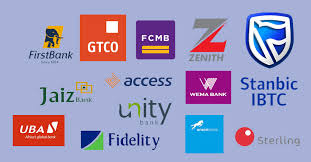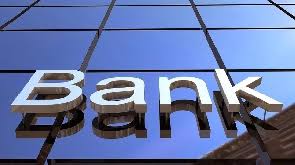![]()
If you’ve landed on this article page, you’re probably searching for a
good business idea—an idea that’s light on the pocket but heavy on
returns, promising both a fulfilling journey and potential profit.
|
How to set up a Commercial Bank in Nigeria
Nigeria has a vibrant banking industry.
As a matter of fact, banks dominate the entire financial
services spectrum.
Prior to 2010, the universal banking model permitted banks to
offer other ancillary financial services.
The Nigeria banking industry is highly regulated.
Thus starting a bank here takes a rigorous process and
require that the promoters engage consultants to help in
different aspects of the process.
But the good news is that serious entrepreneurs, including
foreign entities can obtain banking licenses.
This is as long as they are patient enough to follow
through the process and meet all regulatory requirements.
Nigeria Banking Industry Regulatory Framework
To start a bank in Nigeria, you must get acquaint with the legal
and regulatory framework within which banks operate.
The principal law regulating the establishment and operations of
banks is the Banks
and Other Financial Institutions Act (BOFIA).
This, along with the Central Bank of Nigeria Establishment Act,
2007 empowers the CBN to issue banking licenses, regulate and
supervise banking institutions in Nigeria.
In addition, banks are companies.
Thus, they are also subject to the provisions of the
Companies and Allied Matters Act 2020 (CAMA).
CAMA is the primary law regulating the formation and
operation of companies in Nigeria.
There are also other laws.
These include: the
Nigeria Deposit Insurance Corporation Act, the Securities and
Investment Act, and the Foreign Exchange Provisions and
Monitoring Act.
The Central Bank of Nigeria is the Nigeria Banking Industry
primary regulator.
Other agencies whose activities have bearing on banks include:
The Nigeria Deposit Insurance Corporation (NDIC),
the Corporate Affairs Commission, Financial Reporting
Council and the Securities and Exchange Commission (for banks
whose shares are publicly traded).
Commercial Banking License:
Allows banks to receive deposits, make loans, and provide a
variety of financial services.
National commercial banks must have a minimum paid-up capital of
₦25 billion, while regional banks must have ₦10 billion and
international commercial banks need ₦50 billion.
Commercial banks can operate in all states of Nigeria or in a
specific region, depending on the licensing type.
Merchant Banking License:
Allows banks to offer firms specific financial services such as
advising, underwriting, and corporate restructuring.
The minimum amount of paid-up capital is ₦15 billion.
Certain retail banking practices are restricted for merchant
banks, such as accepting deposits that can be withdrawn by
cheque.
Requirements for Grant of Final License
Within 6 months of receiving the Approval in Principle, the
applicant must submit an application for the final banking
license.
The documents required include:
Non-refundable licensing fee of N5,000,000 in bank draft payable
to CBN.
3 copies each of: Certified true copy (CTC) of Certificate of
Incorporation of the bank, CTC of MEMART, CTC of Forms CO2
(Allotment of shares) and CO7 (particulars of directors).
Evidence of location of Head Office/Branch Building (rented or
owned) for the take-off of banking business.
Changes (if any) in the Board, Management and Shareholding
should be clearly stated for necessary appraisal.
Evidence of strongroom, loading bay and Banking Hall Facilities.
Bullion lorries with necessary security gadgets.
Evidence of installation I.T. facilities/computerization.
Copies of letters of offer and acceptance of employment in
respect of the Management Team.
The CBN will review the application and may issue the final
banking license
Pre-Commencement of Operations Requirements
Before commencing operations, the bank must submit additional
documents to the CBN, such as:
Evidence of admission into the clearing house.
Copy of shareholders register
Copy of share certificate issued to each investor.
Draft copy of opening statement of affairs signed by directors
and auditors.
Evidence of insurance coverage for cash such as Cash-In-Transit
(CIT), Cash on Counter, Strong room/ Vault, etc, insurance
policies.
The key steps to obtain commercial bank license are to submit an
initial application for Approval in Principle, then apply for
the final banking license, and finally meet the pre-commencement
requirements before commencing operations.
Very simply, banks make money by accepting customer deposits and
providing financial services to their customers. Some of the
financial services that banks offer include:
Business loans: Loans to promising small business owners,
including tech startups, health/wellness businesses, augmented
reality technology, mobile apps, and e-learning platform
entrepreneurs. Banks earn money based on the annual interest
rate.
Car loans: Many banks and credit unions provide car loans at
better rates than dealerships and earn money on the interest.
Mortgages: Banks make substantial money by lending funds to buy
a home or investment property then collecting interest. They may
also earn money by packaging loans together and selling them to
other investors.
Investment portfolio management: Experienced bankers may also
offer financial investment portfolios for high net-worth
individuals. They will normally charge service fees based on the
amount of funds they manage for the customer.
Credit cards: Banks may also offer credit cards to earn interest
from the credit card fees. The interest will often be between
15% and 25%, which provides some of the highest returns in the
financial services industry.
Banks also typically pay depositors interest on their deposits,
ranging from .01% for most bank accounts to 5.15% for a
certificate of deposit (CD).
The difference between the higher rates of interest charged to
borrowers and the lower rates of interest paid to depositors is
known as the interest spread, and this is the major component of
bank profits.
Is Owning a Bank Profitable?
Yes. Bank startup entrepreneurs will find a bank’s operations to
be a very profitable business. According to NYU Stern, banks
have nearly 100% gross profits and 30.89% net margins.
That makes a proposed bank nearly three times more profitable
than the average business. But a bank’s operations are highly
regulated. Read on to get an understanding of the agencies that
you’ll have to work with as you learn how to start a bank.
Hiring competent and experienced staff who share your vision is
a critical step to take, and one that requires significant
thought, time, and energy.
We can easily identify the following types of specialized banks
operating in Nigeria.
Non Interest Banks
These banks operate in line with Islamic principles.
Though these banks are faith based, they open their doors
to non Muslim banking public as well.
Get our Practical Guide on how to set up a commercial Bank in
Nigeria. As you can see, banking is a serious business and only
serious investors or entrepreneurs can muster the patience to go
through the rigorous
process of setting up one. It is also capital intensive.
The first step for entrepreneurs or investors who want to start
a bank in Nigeria is to engage consultants with the expertise in
different aspects of the start up process.
Fund raising, legal and regulatory issues, technical
advisory and documentation, are some of them. Our in house
experts are ready to assist you all the way This Guide will show you the necessary steps to opening your own bank. We’ll explore how to determine a need and a target market, detail the elements of a good business plan that will provide the platform for your success, show you the regulations you’ll need to comply with and how to meet them, and outline the staff you’ll need to hire to provide excellent customer service and build your bank’s reputation.
|







